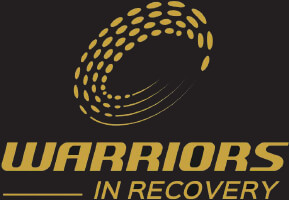Most clients who come to see me attribute a painful shoulder, neck or back to tired muscles or stiff joints. But these symptoms can also be caused by a part of your body you probably haven’t heard of…the fascia. Until recently, this complex network of tissue throughout our bodies received very little attention despite it’s leading role in every move we make, as well as being our body’s largest organ (yes, it’s larger than the skin).
What is fascia?
Fascia is a thin covering of connective tissue that surrounds every organ, blood vessel, bone, nerve fiber and muscle in place within our body. This complex tissue does way more than provide internal organization and structure; it also contains nerves that are almost as sensitive as your skin. When fascia is stressed, it tightens up within our body. The muscle tightness you’re feeling is more likely being caused by your fascia.
Although fascia can look like a sheet of tissue, it’s actually made up of multiple layers with liquid in between called hyaluronan. Fascia is designed to stretch and glide as your body moves. Healthy fascia is smooth, slippery and flexible and allows body movement free from any restrictions.
Fascia-Related Pain and Muscle Tightness
When certain things occur within your body, it can cause fascia to thicken and become sticky. When this happens it can cause fascia to dry up and tighten around muscles causing limited mobility, pain, and knots (adhesions) to develop. Factors that can cause fascia to become dysfunctional are:
- Lifestyle of limited movements and physical activity, such as sitting for hours at a desk day after day
- Repetitive movements that overwork one part of your body, like with your arms when working on a computer
- Trauma of a surgery or an injury
For some people, pain adhesions can worsen over time causing the fascia to contort or compress the muscle it surrounds. This can result in hard, tender area in the muscle called trigger points. These trigger points can cause pain to occur:
- During regular movements or in sports activities
- When pressure is applied to an area on the body
- In seemingly unrelated parts of the body called “referred pain”
How to Keep Fascia Healthy?
Keeping your fascia healthy has many more benefits than you can imagine. Besides being able to move more easily, having better range of motion, you will find that you experience less pain and discomfort too. Things you can do to prevent fascia problems are:
- Move more and in a variety of ways. In addition to exercising, change up your routine and avoid doing the same workout every day.
- Have a desk or office job? Take a few minutes every hour to stand up and move around the office. Consider taking the stairs vs. the elevator, walk around your office when on a conference call. Be active throughout your day.
- Try to maintain good posture. Posture is important because it’s the position from where all movement starts. Slumping over your desk staring at a screen or on the phone can cause fascia to tighten. Try to maintain good posture whether sitting or standing.
- Get Sleep. Maintaining proper rest is priceless and cost you nothing.
- Stay Well Hydrated. Drink water throughout your day…don’t wait until your thirsty.
- Practice relaxation methods such as Breathing Exercises. Your body is built around your breath! Again, this costs you nothing.
Types of Fascia Pain Conditions
- Plantar Fasciitis
- Carpal Tunnel Syndrome
- Frozen Shoulder
- Myofascial Pain Syndrome
How to Treat Fascia Pain?
Apart from the obvious unpleasant pain, fascia system dysfunction can get in the way of doing sports or other physical activities. Pain is a message from your body that something is wrong. Stress trauma and overuse/underuse, and repetitive movements can alter your fascia system’s integrity. While it is not certain what caused it, one thing for sure is that relief is possible with the right treatment.
Every previous injury you’ve experienced in your life is like malware in your body’s fascia system. Like malware glitches can slow down the performance of a computer, previous trauma impacts the nervous and fascia systems to create “energy leakages” that influence overall body performance. The body is an interrelated system and every action causes a reaction.
At Dominion Performance and Sports Therapy, I offer a manual therapeutic soft tissue approach that doesn’t involve steroid shots, dry needling, acupuncture, or pain. Starting with a complex biomechanical screening used to assess your body, I’m able to identify and explain the root drivers for your discomfort. Then, show before and after a treatment screenings that provide the data backed results.
Cheers, DRock







